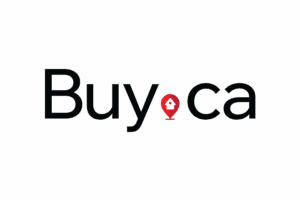What type of documents do I need for proof of income when getting a mortgage?
If you’re looking to get a mortgage, inevitably you will need to provide proof of your income. This is easier for some than it is for others.
Proof of your income is needed so your lender can gauge how much mortgage you can afford on a monthly basis. After all, they can’t just lend to anyone who asks, and they need to make sure the person borrowing the money is likely to pay it back. “Can’t they just trust me?” you ask, well, you or I may know how much we can afford, but invariably many do not. In the end, our goal is to get a mortgage, so we have to play by the lender’s rules.
The type of documents required to confirm your income will depend on your employment type, and how you are paid. In this article we are going to go over all the different types of income and what documents you’ll need to provide to prove it.
Types of Employment
Salary or Hourly – You can confirm your salary income by providing a recent pay stub and job letter (usually must be dated within 30 days). If your income fluctuates due to overtime, T4 tax slips from the past two years can be provided and averaged to confirm your income.
Part Time – You must work in a part time position for a minimum of two years for this income to be considered with most lenders. You’d be required to provide a pay stub, job letter, and T4 tax slips from the past two years.
Bonus Income – If you receive a bonus, this can be confirmed in your job letter, and T4 tax slips from the past two years.
“One of the quickest ways to access your tax documents is by logging into your Canada Revenue Agency (CRA) account, or by speaking with your tax professional,” says Ali Hussin, Head of Mortgage Advisory at Perch.
“One of the common issues we see is in regards to the job letter,” says Hussin. “For a job letter to be valid, it must include the date, name and address of the employer, wage or salary information, and the name and job title of an employee authorized to provide a job letter on behalf of the company. This would typically be your manager, or an HR representative.”
How do I prove my income if I’m self-employed?
If you own your own business, providing proof of income is a little more involved and will vary depending on the lender. Here’s what each lender typically requires as proof of income if you’re self-employed:
Prime lender – Self Employed income can be confirmed by providing the most recent T1 General tax form and Notice of Assessment (NOA) from the past two years, to confirm any taxes owing. If there are taxes owing on your NOA, you’d also be required to provide a Statement of Account to confirm they have been paid off to $0. Articles of Incorporation would be required if the company is Incorporated. If the company is a Sole Proprietorship, the bank may request a Master Business License or other documents such as bank statements to confirm the business existence. Depending on how you pay yourself as a Self-Employed person, you may also be required to provide T4 tax slips.
Alternative lender – B lenders will consider the same income confirmation requirements as A lenders (check out this article for more info on alternative lenders), unless you are using bank statement deposits to confirm higher income. Some banks will consider using an average of your business bank deposits, less expenses to qualify your income. In this scenario you’d be required to provide a minimum of six month’s bank statements showing the business name, invoices to match the deposits, and some additional documents to confirm the business existence.
Other types of income:
Contract – For contract income, a two year average is considered if there are multiple short term contracts. This can be confirmed by T4 tax slips, and a job letter explaining the duration and pay rate for the contractual position. For longer term contracts, a pay stub and job letter may be sufficient in some cases.
Seasonal – Seasonal income can be confirmed by showing a two year average using T4 tax slips and a pay stub. Employment insurance (EI) income can also be considered for this type of employment.
Retirement – Retirement income can be confirmed by providing T4A’s for the most recent two years, and three month’s consecutive bank statements showing CPP/OAS/Pension income deposits. RIF (Registered Retirement Income Fund) income is also acceptable and can be confirmed via T4RIF form.
Commission Income – This type of income can vary so the best way to validate it is by averaging out the last two years gross earnings. This can be done using T4s or T1 Generals’, depending on how the income is filed. If T1 Generals are used to gather the gross totals, Notice of Assessments would also be required, in addition to a Job Letter from the company you work for.
Rental Income – You can provide proof of your rental income by providing lease agreements and 3 months bank statements for each property where you collect income. Alternatively, you can also confirm it through your T1 Generals. Some banks may allow exceptions for rental income by confirming it through an appraisal with a “Market Rents Evaluation”, where an appraisal is done to validate how much money you can collect for your property, based on neighborhood market comparables. Rental Income from properties outside of Canada is often not considered, unless it’s claimed in Canada and shown on your T1 Generals.
Investment Income – You can provide a T5 slip or your T1 Generals to confirm investment income. Recent statements for the investment account would also be required. Trust Income can be confirmed by providing the last two year’s T3 forms.
Foreign Income – There are a few different ways Foreign income can be confirmed, depending on how it’s earned. You must be claiming it on either your Canadian T1 General, or within the country its being collected. As this can be case specific, it’s best to reach out to your bank or mortgage advisor to discuss exactly how you are able to confirm this type of income.
Employed by family – In cases where you are employed by your family members or receive a salary from a family business, you may be asked to provide additional documentation. In addition to pay stubs and a job letter, you may also be asked to provide Notice of Assessments, T1 Generals, and your T4s.
Spousal Support (Alimony) & Child Support Income – This type of income can be confirmed by providing a signed and completed Separation Agreement where it outlines the monthly income you are earning. You may also be asked to provide bank statements as added confirmation.
Government Income:
Child Tax Credit – This can be confirmed by providing a statement of your Child Care Benefit issued from the Government of Canada. You may also be asked to provide bank statements as added confirmation.
Disability Income – This can be confirmed by providing a statement of your Canada Disability Pension issued from the Government of Canada. You may also be asked to provide bank statements as added confirmation.
To Conclude
Hopefully we covered your situation, but here are some key things to know:
The above descriptions of income requirements are simply a guideline for the “typical” income requirements lenders will ask for. All mortgage applications are subject to underwriting scrutiny with each lender having their own set of requirements. You may want to be prepared to provide additional documents, as this is very common if there is additional verification needed. Trust the process, be patient and ask as many questions as you need to, your mortgage advisor will be there to guide you all the way to the finish line. At Perch we try to make it as easy as possible for you to get a mortgage, and our mortgage advisors are available to help you along the way.
 Joey
Joey





